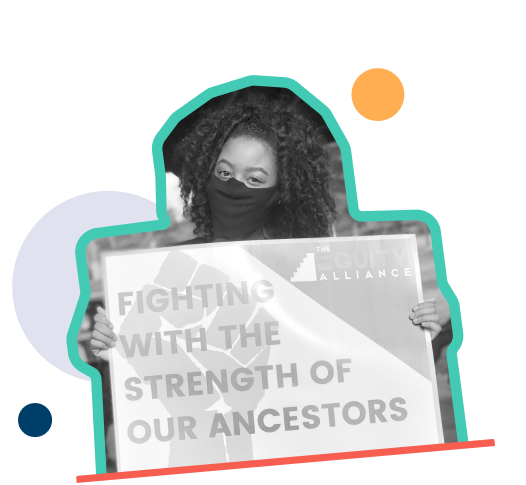Dear friend,
In March 2022, I organized my first site visit to Puerto Rico as a staff member of NFG’s Amplify Fund. I had been to Puerto Rico many times in my prior job at Open Society Foundations, but, this time, I committed to spending two weeks on the island. Two weeks gave the grantees more days to select the time that worked best for them, and it offered us all the opportunity to have relaxed, spacious meetings that didn’t stress every block of time on the calendar.
The schedule also left me with an unplanned weekend on the island. A friend and fellow funder, Alexandra Hertell, Executive Director of Fundación Segarra Boerman, suggested I rent the wood cabin on her family’s property in Carite, a barrio in the municipality of Guayama. The day I arrived, Alexandra and her partner, Jaime Suárez Berrocal, put me on a canoe and took me around Lago Carite and the adjoining rivers. Amidst the beauty of the shoreline and vegetation, they pointed out the destruction Hurricane Maria had wrought, and that still remained five years later. They also showed me where a billionaire and Act 22 beneficiary named Brock Pierce had bought land. The 24-acre property used to be known as the Carite Lake Villas and belonged to the union that represented workers from the Puerto Rico water utility. Now it is owned by a crypto investor.
I spent the rest of my weekend at the cabin with Alexandra and Jaime’s family. Their hospitality, their deep knowledge of agro-ecology and art, and their analysis of the problems in Puerto Rico - all of what they showed me - left an impression that I carry to this day.
I recount this story because it's illustrative of lessons I learned from working in Puerto Rico for over 7 years.
-
My first lesson was that colonialism is ever-present in Puerto Rico. The theft of land and extraction of resources which began in 1508 by Juan Ponce de León, lieutenant under Christopher Columbus, continues through different policies. Act 22, later amended into Act 60, was passed in 2012 to “promote the relocation of individual investors to Puerto Rico.” It effectively gives tax breaks to the wealthy. Since the law passed, purchases by cryptocurrency billionaires, Wall Street executives, and wealthy developers have caused soaring housing prices, displacement, and real estate market speculation. Development is also harming coastal communities, damaging beaches, and fueling deforestation of protected mangroves and wetlands. Local funders, like Alexandra, and Amplify grantees, like Ayuda Legal and Fideicomiso de Tierras Comunitarias para la Agricultura Sostenible, are working to put housing and land back in the hands of local communities with varying levels of success. I believe my role, as a national funder working in Puerto Rico, is to support groups working at the intersection of racial justice, power building, and land justice. It is also my responsibility to keep Puerto Rico in the reparations and #landback conversations because these solutions have been, and continue to be, relevant for Puerto Ricans.
-
I have also learned the power of connecting and conspiring with funder colleagues. Alexandra and I have become fast friends. Aside from both being Pisces who love to travel, we have met each others’ families, shared personal challenges, and continue to connect at conferences, including the CHANGE
Philanthropy Unity Summit in 2023 and the upcoming Environmental Grantmakers Association conference in September. I have also been lucky to befriend Xiomara Caro Diaz, Executive Director of María Fund, who I met on my first work trip to Puerto Rico back in 2016, and who immediately impressed me with her organizing acumen and political analysis. These relationships make it easier to strategize about how to support and co-fundraise for our mutual grantees in Puerto Rico, and to discuss how we can better live out our values through our grantmaking practices. I am excited to continue to build these types of relationships during Amplify Fund’s upcoming funder visit to Puerto Rico.
-
My third lesson, because you always have to have three, is that we must remain steadfast in our commitment to Puerto Rico. Foundations have a habit of shifting their strategies once a crisis disappears from the news. When Hurricane Maria hit Puerto Rico in 2017, funders flocked to provide aid, but disappeared a few years later. Unfortunately, communities are still struggling from Hurricane Maria and its after-effects, including the disaster capitalism that ensued. Organizers have been persistent in their struggles, therefore, we must continue funding them. Amplify Fund has pledged an additional 10 years of funding to our places, including Puerto Rico, and we hope you, as conscientious funders, will join us. The people I have met, with their dedication and generosity, deserve our continued support.
These lessons are also consistent with how Amplify Fund does its work. For example, we have created our Funder Learning and Organizing Space (FLOS) to aid in connecting national, regional, and local funders so we can shift where, to whom, and how philanthropy provides support together. And, we have designed a new governance structure called the Co-Leadership Committee composed of Amplify’s grantees and funders to shift who holds power over the fund and build meaningful relationships between the two groups. We are also planning a learning visit to Puerto Rico to continue relationship building between funders, and between grantees and funders, all while learning about Puerto Rico's current and historic social, political, and cultural landscape. If you are interested in starting, or expanding, your investment in Puerto Rico, and want to join us on this learning visit, please complete this survey.
